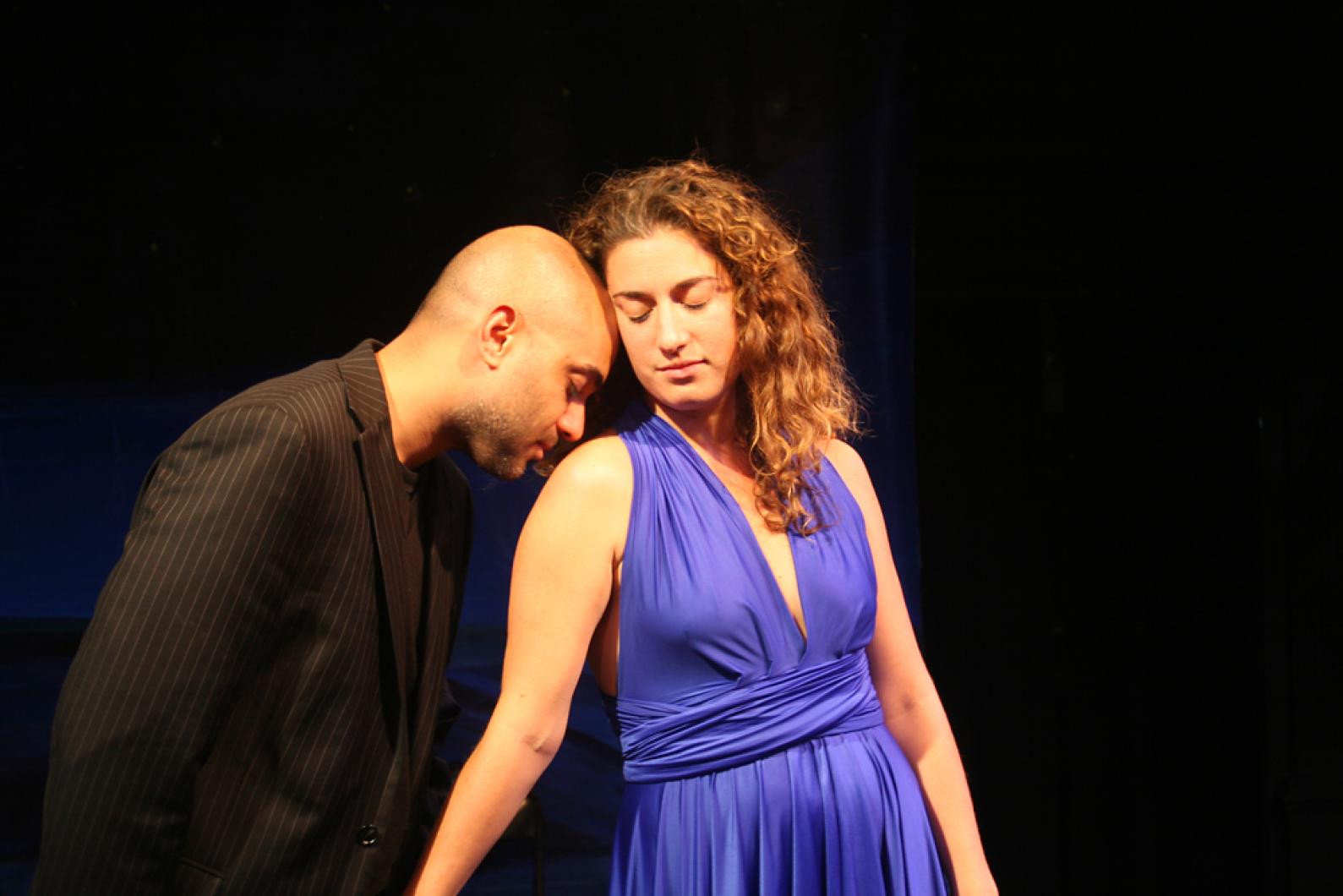Two years ago, as Brooke Hardman made the move to what she then saw as “a remote Island,” the actress whose career had taken her to Boston, New York and Chicago resigned herself to the fact that “I wouldn’t be acting anymore.”
Now, preparing for a starring role in the Actor’s Shakespeare Project’s Boston production of Othello and hammering out the details of a collaboration between ASP and her own arts enterprise, Art Farm, to bring theatre education programs to Island schools, she can gratefully reflect, “I was dead wrong.”
The Boston production is special to her not only because the role of Desdemona has always been on her “short list” (which, she confesses, is not really very short at all), but because it promises a reunion with former mentors.
Paula Langton, who will be playing Desdemona’s maid Emilia, first encountered Ms. Hardman as a fourth grader in public school in North Adams, a small town in the Berkshires. Ms. Langton was visiting her school as a resident artist from Shakespeare and Company, a Lenox-based theatre company .
At that time, Ms. Langton probably would have been struck by the young Hardman’s zeal for the stage. In the production of King Lear, Ms. Hardman recalls, “I was so into my death scene I was still dead on stage when everybody was taking a curtain call.”
What really drew her to the theatre, however, was not what happened on the stage so much as what happened behind it. She remembers going to see a high school production of Brigadoon and seeing the cast and crew celebrating in the hallway after the show: “Being so young, I couldn’t tell you what Brigadoon was about, but I could tell you what they were doing after the show.”
It was the camaraderie she saw that drew her in, and kept her in. “Theatre gave me my first experience of real community,” she says, and it is this element of the art that she continues to value uppermost. “To me,” she says, “the experience of theatre is more about the process than the product.”
Ms. Hardman went to work with Shakespeare and Company all through high school. At 16, torn between the rival passions of theatre and violin, she attended Boston University’s summer theatre program, where she met her future husband Brian Ditchfield and chose to pursue theatre.
At the end of the summer the students were invited to audition. Both she and Ditchfield auditioned, and both were accepted. They started dating their freshman year, and costarred as Portia and Bassanio in Merchant of Venice in their senior year.
After graduation he moved to Chicago. She moved to New York to begin what she calls the “roller coaster ride” of making a living in the arts. Among other jobs, she worked as a receptionist in a Japanese insurance agency where little English was spoken, transferring calls based on what she could decipher over the phone. Her first paid acting gig was a spot on a commercial as the girlfriend of an obsessive wrestling fan.
The New York years, she says, were an important training in flexibility. “I got my sea legs in New York,” she says.
After the collapse of the twin towers, which Ms. Hardman watched from Brooklyn before taking refuge from the cloud of dust and debris that poured across the East River, her old theatre friend and former boyfriend Mr. Ditchfield suggested she come to Chicago, where he was living and working in the thriving theatre scene.
Reunited in Chicago, they married and cofounded Shack Productions, a film company. Ms. Hardman produced a feature-length documentary, Know Hope, which chronicles a group of high school students who travel through Poland and Israel with five Holocaust survivors, and starred in The Last Will and Testament of Marlboro Patch, a film written by Mr. Ditchfield.
Now the indomitable pair runs Art Farm, a multifaceted arts venture that has a strong focus on theatre education. They want to meet the challenge of arts funding with an entrepreneurial, energetic approach. “When times get tough,” she says, “you can look at it as misfortune, or opportunity. What better time to try new techniques?
“If you had told me last year where we would be, I would have been floored,” she says. “Thinking about it logically, everything we’re doing is impossible.”
Part of Ms. Hardman’s faith in the power and possibility of radical transformation lies buried in her childhood, in an accident of time and place.
North Adams was a depressed former mill town, but as Ms. Hardman grew up, she watched as its complex of abandoned industrial buildings transformed into the country’s largest center for contemporary arts: MASS MoCA.
The experience of being a part of that town which really got behind the project, she says, must be lodged “somewhere in my psyche.” It seems especially prescient now as she works with Art Farm to transform the abandoned old Edgartown School building into a theatre.
In addition to this work and her upcoming role in Boston, Ms. Hardman is also preparing for a weeklong residency in Provincetown, where she will be working with fifth to eighth graders.
This weekend, she will be playing Viola in Twelfth Night at the Vineyard Playhouse in the Shakespeare for the Masses production (she played the role of Desdemona in its Othello production late last year, already knowing she would play the role in Boston next month).
Shakespeare’s Twelfth Night is performed in 65 minutes, for free, at the Vineyard Playhouse, Friday and Saturday at 7 p.m. Donations are welcome, of course.






Comments
Comment policy »